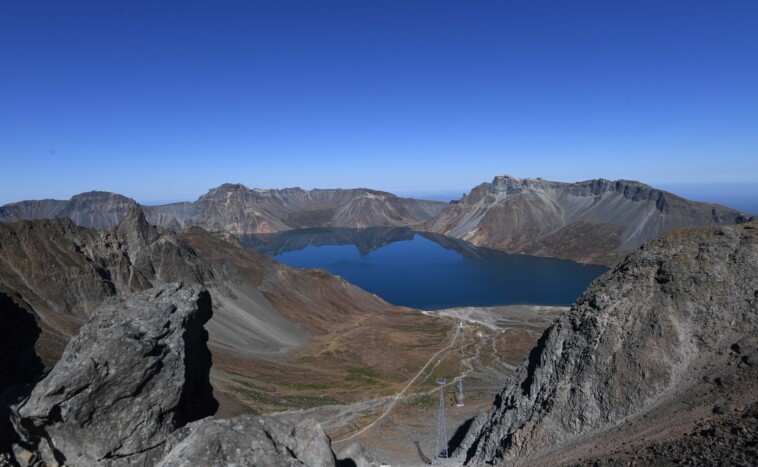A sacred North Korean mountain was recently recognized as a UNESCO Global Geopark, the first time a natural site in the country has been included on the list.
Mount Paektu, an active volcano and the highest peak on the Korean peninsula, was honored for its “impressive natural and cultural heritage,” according to CNN Travel.
The mountain was recognized by the executive board of the United Nations Educational, Scientific and Cultural Organization as one of more than 200 geoparks.

The organization defines geoparks as “single, unified geographical areas where sites and landscapes of international geological significance are managed with a holistic concept of protection, education and sustainable development.”
Mount Paektu is rooted in North Korean legend, considered the birthplace of Dangun, the mythical founder of the first Korean kingdom.
It is also steeped in political significance, as North Korea’s founder, Kim Il Sung, Kim Jong Un’s grandfather, used it as a hideout while fighting for the country’s independence from Japan in the 1940s.
North Koreans also believe that Kim Il Sung’s son, Kim Jong Il, the father of Kim Jong Un, was born on the mountain’s summit, although there’s no historical evidence to back the claim.
Kim Jong Un, who has served as the supreme leader of North Korea since 2011, also keeps up the tradition of his elders and pays visits to the mountain during times of trouble, like the 2013 execution of his uncle and the 2016 nuclear test.
In 2018, he even brought then-South Korean President Moon Jae-in to the mountain, a symbol of unity for the two countries, known for their ongoing conflict.

Mount Paektu is also marveled for its geological significance, having been the site of one of most powerful volcanic eruptions in recorded history more than a thousand years ago in 946 CE.
With its newfound global status, the country may try to rebrand the mountain as a tourist destination, promoting its storied history and natural wonder.



